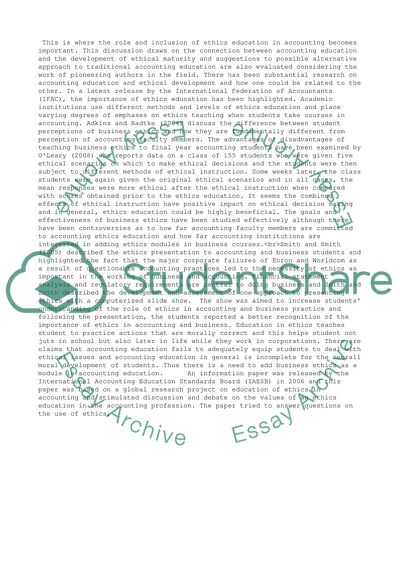Cite this document
(“Accounting Education and the Development of Ethical Maturity Essay”, n.d.)
Accounting Education and the Development of Ethical Maturity Essay. Retrieved from https://studentshare.org/business/1526778-accounting-education-a
Accounting Education and the Development of Ethical Maturity Essay. Retrieved from https://studentshare.org/business/1526778-accounting-education-a
(Accounting Education and the Development of Ethical Maturity Essay)
Accounting Education and the Development of Ethical Maturity Essay. https://studentshare.org/business/1526778-accounting-education-a.
Accounting Education and the Development of Ethical Maturity Essay. https://studentshare.org/business/1526778-accounting-education-a.
“Accounting Education and the Development of Ethical Maturity Essay”, n.d. https://studentshare.org/business/1526778-accounting-education-a.


